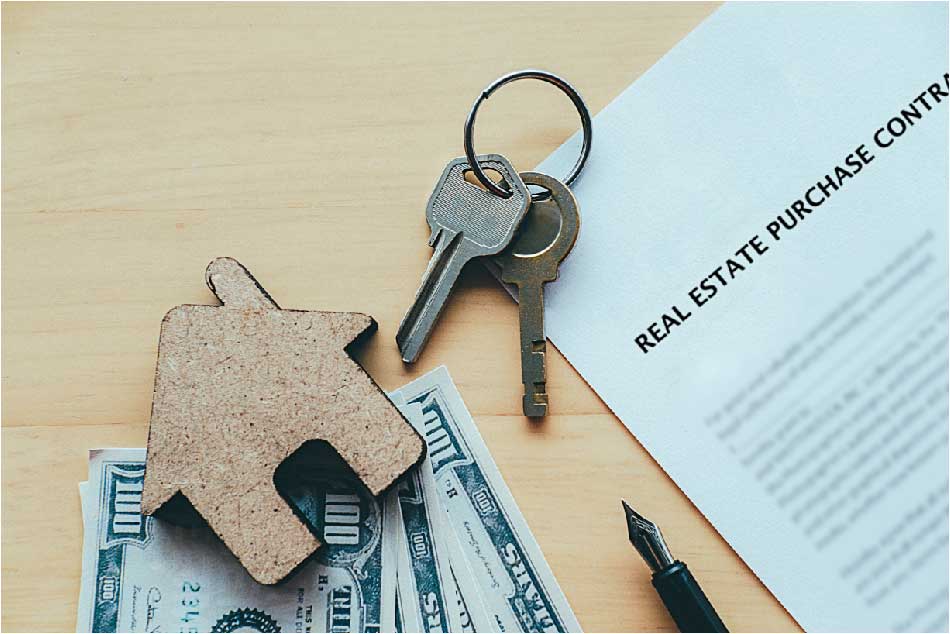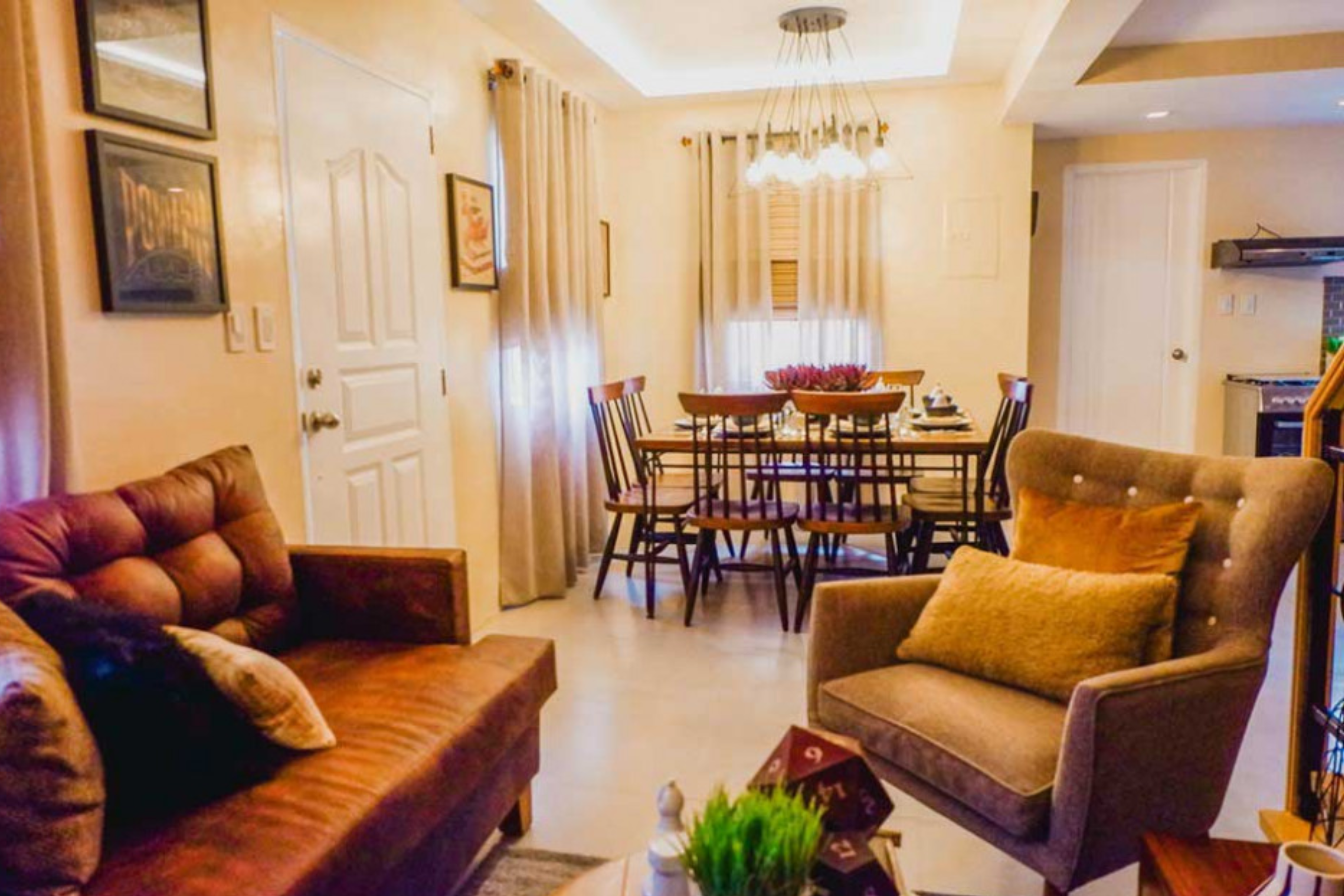House prices aren’t the only thing you should put in mind when it comes to how much you’re willing to pay for a house and lot in the Philippines. Factors such as property types and location play a role in setting the price, but documents and taxes also make up a huge chunk of money. In today’s article, we’ll go in depth on how much money, time, and effort you’ll need to buy a home in the Philippines.

What are the factors affecting house prices?
The home buying process isn’t always a breeze. Before putting a down payment, there are several factors that affect real estate prices. Finding the right type of property, your main purpose, defining the property value appreciation rate, saving up for the selling price, and conducting a site viewing are also just one of the few things a home buyer should primarily consider. Here are a few factors that affect house prices in the real estate market.
Type of Property
Determining if you’re going to buy a condo, townhouse, or house and lot has an impact on how much you need to pay for real estate properties. A house and lot for sale in the Philippines usually costs more than condominium prices because of the bigger packages.
Location
Location also defines how much money to save or spend for a house and lot in the Philippines. The closer you are to the city or business district, the higher the house prices. For instance, a condo for sale in Metro Manila is more expensive than a condo for sale in Bacolod City. Being in proximity to shopping malls and road developments also affect real estate prices. So if you have a real estate property in the province and as long as your home is near developments, your home has a higher market value and property appreciation rate because of the growing real estate market demand.
The Developer’s Target Market
One thing that OFW investors should know when buying a house and lot for sale in the Philippines is to determine the real estate developer’s target niche or average price of houses. This way, you’ll learn what to expect from their property prices and packages. Bria Homes, for instance, offers affordable house and lots for sale in the Philippines that targets an average-income earner. Brittany, on the other hand, is a luxury real estate developer in the Philippines that offers upscale condos for sale, residential land, and house and lots for sale in prime locations.
However, buying a home for overseas Filipinos is a whole new process because of the different time zones and more paperworks. Additionally, you need to exert more effort in looking through online property listings and finding the right real estate developer in the Philippines.
Cost of Documents Needed for Buying a House

There are several documents you need to secure when engaging in real estate transactions in the Philippines. While documents may not be included in the price of buying a house in the Philippines, it’s one of the costs that a homebuyer has to pay or process. We’ll tackle the necessary documents for yourself, as a buyer or client. These are the following:
Tax Identification Number (TIN)
A few real estate developers in the Philippines often ask for a TIN Card when you reserve a house and lot unit. You can apply for a TIN Card at your nearest Bureau of Internal Revenue (BIR) branch.
Birth Certificate or Marriage Certificate
A birth certificate or marriage certificate is required when buying a house and lot in the Philippines. This document serves as your proof of citizenship, age, nationality, or legal capacity to enter into Philippines real estate transactions.
It’s also how you can apply for other government documents such as passport, driver’s license (for locals), etc., so it saves time to present your birth certificate or marriage certificate for married couples.
NBI Clearance
This is to prove that you have no criminal record. While it may not be required for other real estate developers in the Philippines, a real estate broker might require you to present them a copy of this to ensure that all parties, buyer, seller, and real estate agent, is protected. The report needs to be from your local police department or any national agency.
After duly processing these documents, you can present these valid IDs as you go through the reservation process. You will be presented with a bunch of contracts to sign and read. In the next part, we’ll discuss the necessary contracts and documents that you should know when buying a home.
Deed of Absolute Sale
This document will define who are the parties or official names involved in the real estate transaction, the transfer title number, how much you are going to pay for the property that you want to buy. It also includes how much money needs to be paid as down payment, how much can be borrowed from a bank or any other financing institution, and how long is your loan period.
A Deed of Absolute Sale should contain the following information:
- Details about the buyer(s), seller(s) and real estate agent or developer (if applicable).
- The legal names on these documents must match those in the IDs presented before signing.
Property description
The address of the house and lot for sale and the size of the floor area and land area of the house unit. The exact address should contain the block number, lot number, enclave or phase number, subdivision name, street name, barangay, longitude and latitude coordinates, and city or province name.
Price
The document should include the selling price or total contract price agreed upon between both parties.
Transfer Certificate of Title
This is a document issued by the Registry of Deeds when the title has been transferred to the buyer.
Taxes to Pay When Buying a Lot in The Philippines

In any transaction, there’s always a certain tax involved in the process. Taxes involved in a real estate transaction takes part of the prices set by a real estate developer. For a typical real estate transaction, it’s important to be aware of the taxes involved in buying a house and lot for sale in the Philippines so you would know where your money goes.
1) Capital Gains Tax (CGT)
Tax rate: 6%
This tax is imposed on the gains from the sale or exchange of property. When you sell a piece of real estate, i.e., house and lot that you’ve bought before, there’s a capital gains tax to be paid depending how long you have owned it.
Capital gains tax doesn’t apply if your house is classified as a “principal residence.” It means that your house and lot in the Philippines must be used for your own sole benefit, and that no one else has the right to live on it.
2) Documentary Stamp Tax
Tax rate: The documentary stamp tax rates vary depending how much you paid for your house and lot.
For example, if the acquisition cost of a piece of land is more than P500,000 but not exceeding P100 million, you will pay 0.75 percent tax on it. But if it’s worth over 100M pesos – then this rises to three percent (of the entire price).
A documentary stamp tax is paid once you’ve bought a property. This tax depends on how much the transaction is worth, and how many documents are involved in the sale contract. Essentially, the stamp tax applies to contracts, instruments, loans, and other paperwork documenting a sale or assignment of an obligation, right or property.
3) Transfer Tax
Tax rate: The rate of transfer tax in the Philippines is usually based on how much the property is worth in its fair market value.
A transfer tax is paid when you transfer the ownership of a house to someone else. This tax is based on how much your property is worth, and how many documents are involved in the transaction. It’s usually at a fixed percentage of the property’s value.
The Bottom Line
The overall value of buying a house and lot for sale in the Philippines is worth the expenses. Although there are many things to consider, it is worth all of them in the end as you have a place to call home and not just an apartment that someone else owns. A great advice real estate agents would tell you is to set aside at least 30% of your monthly income to save up for the downpayment and monthly amortization.
Find a House Within your Needs and Budget
Vistaland International Marketing Inc. (VIMI) has several real estate investments in the Philippines that can surely generate extra income for the household. These are properties that have rental features to pay off monthly bills or expenses. VIMI has a roster of real estate developers in the Philippines that has a proven track record of providing homes and building dreams to OFWs.
Vistaland International was primarily created to bring OFW closer to their dream of finally acquiring a home in the Philippines. And with the rising cost of living in the country, OFWs and their families are looking for ways to earn extra cash flow to support their daily needs. Luckily, you can also join the global network of Vistaland International as a real estate professional and earn a commission!
Vistaland International Marketing, Inc. (VIMI) is the international marketing division of Vista Land. Aiming to provide OFWs and migrant Filipinos a home in the Philippines, VIMI has established long-lasting relationships with brokers and clients around the world.
Get started with your property investments! Contact us today and follow our social media accounts: Facebook, YouTube, Twitter, Instagram, and LinkedIn.



